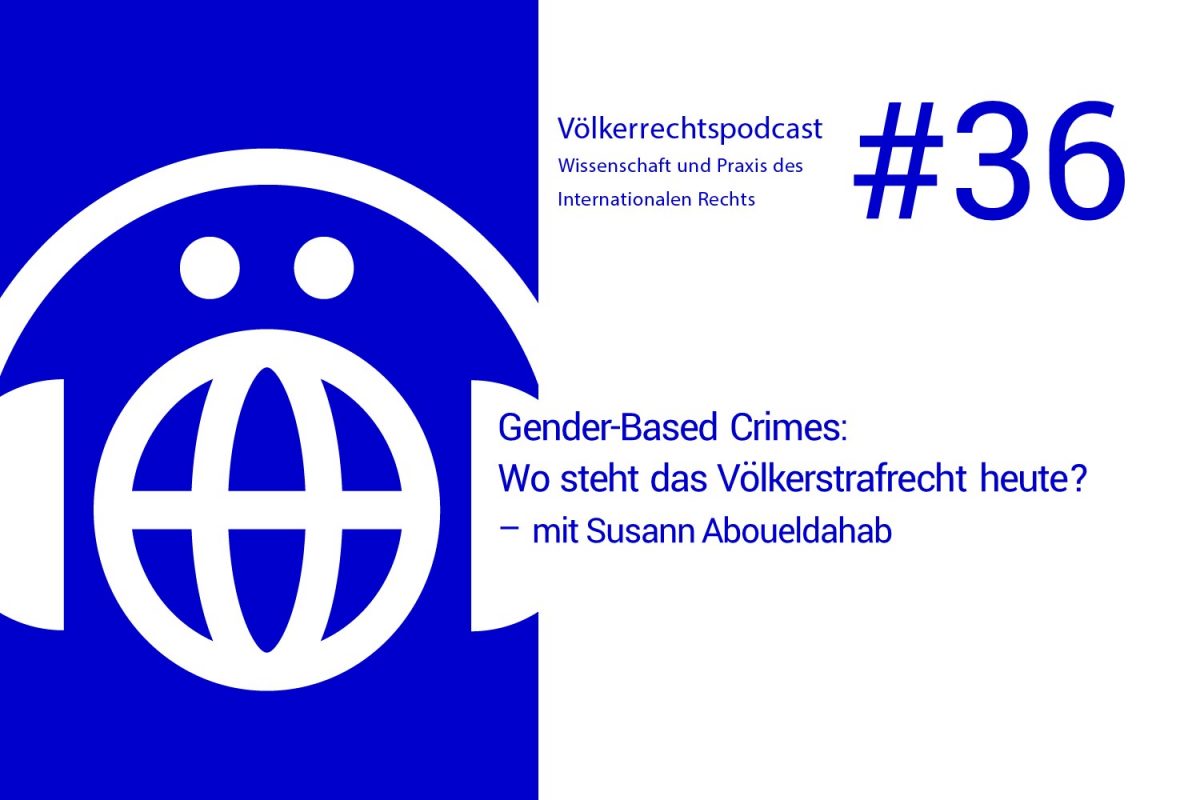Content-Warnung: Diese Episode enthält Schilderungen sexualisierter Gewalt.
Inwieweit schützt das Völkerstrafrecht heute vor gender-based crimes? Was genau umfasst dieser Begriff überhaupt?
Isabel Lischewski skizziert die Entwicklung der völkerstrafrechtlichen Anerkennung von gender-based crimes und im Interview spricht Jan-Henrik Hinselmann mit Susann Aboueldahab über die Theorie und Praxis dieses Rechtsgebiets.
Wir freuen uns über Lob, Anmerkungen und Kritik an podcast@voelkerrechtsblog.org. Abonniert unseren Podcast via RSS, über Spotify oder überall dort, wo es Podcasts gibt.
Hintergrundinformationen:
- Mission Report of the Official visit of the Office of the SRSG-SVC to Israel and the occupied West Bank 29 January – 14 February 2024
- ICC Office of the Prosecutor, Policy on Gender-based Crimes. Crimes involving sexual, reproductive and other gender-based violence, 2023
- V. Oosterveld & N. Dotson, Gendered Crime as a Central Focus in the ICC’s Al-Hassan Case, Armed Groups and International Law Blog, 2023
- V. Oosterveld, Recognizing the Complexity of Gender in the Crime Against Humanity of Persecution, Just Security Blog, 2023
- T. Altunjan, Reproductive Violence and International Criminal Law,T.M.C. Asser Press 2021
- S. Aboueldahab/ M. C. Correa Flórez, Sexual violence in armed conflict and transitional (criminal) justice: The Colombian case, in: Ambos/ Martínez (Hrsg.), Göttingen Handbook on Latin American Public Law and Criminal Justice, 2023, 457-178
Moderation: Jan-Henrik Hinselmann, LL.M. (NYU) & Dr. Isabel Lischewski
Grundlagen: Dr. Isabel Lischewski
Interview: Susann Aboueldahab & Jan-Henrik Hinselmann, LL.M. (NYU)
Schnitt: Jan-Henrik Hinselmann
Credits
- Pramila Patten, Special Representative of the UN Secretary-General on Sexual Violence in Conflict, Press Conference, 4. März 2024. (Recordings)
Kapitelmarken
(3:10) Grundlagenteil
(6:30) Die Aktualität sexualisierter Gewalt
(9:55) Der UN-Bericht vom 4. März 2024 (Beweiswert; “weapon of warfare”-Narrativ)
(20:55) Dogmatische Differenzierungen innerhalb “gender-based crimes”
(32:50) Die Kontroverse um den Gender-Begriff im Rom-Statut
(37:25) Das “Global Ecosystem of Accountability” (Special Jurisdiction for Peace in Kolumbien)
(39:30) Ein Blick voraus (Völkerstrafrecht und Transitional Justice)

Jan-Henrik Hinselmann is a doctoral candidate at Georg-August-Universität Göttingen and an editor at Völkerrechtsblog.


Dr. Isabel Lischewski is an Editor and Podcast Co-Host at Völkerrechtsblog as well as a post-doctoral researcher focusing inter alia on gender, governance, and education in international and German public law at University of Münster.